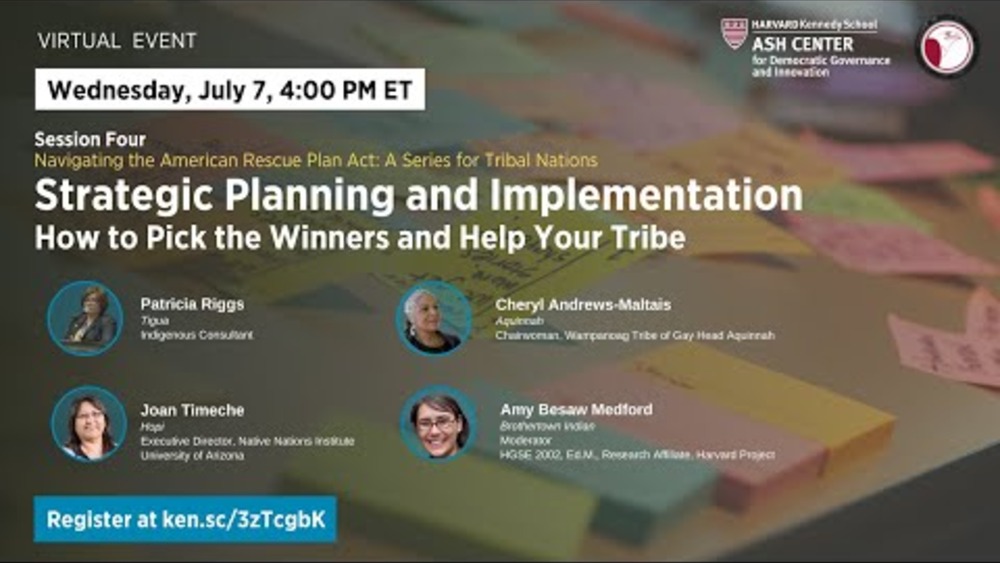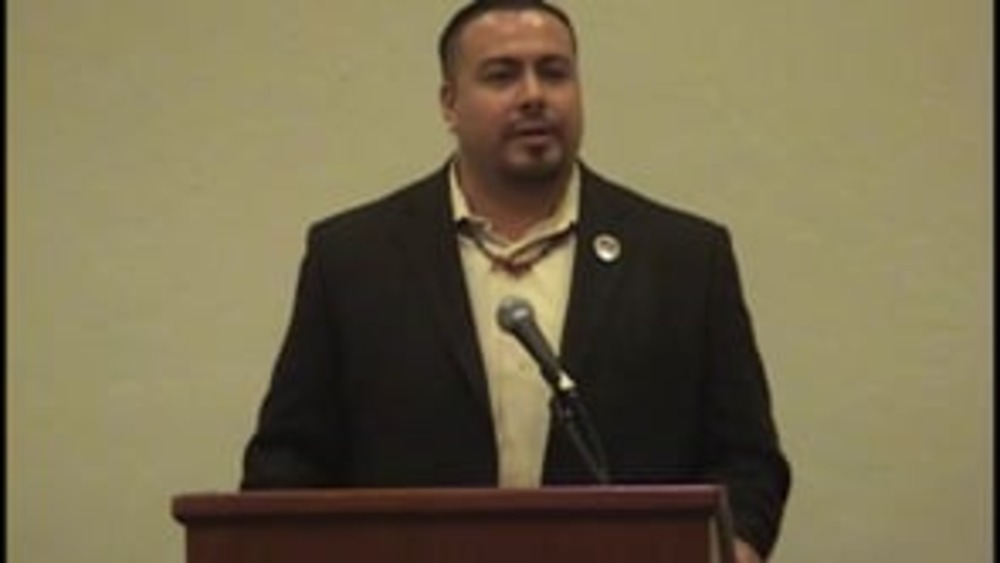Native leaders explain the importance of strategic thinking and planning to effective Native nation governance and emphasize the consideration of future generations in Native nations' decision-making processes.
Additional Information
Hurtado, Denny. Native Nations Institute for Leadership, Management, and Policy, University of Arizona. Tucson, Arizona. March 26, 2009. Interview.
Makil, Ivan. Nation Building seminar. Native Nations Institute for Leadership, Management, and Policy, University of Arizona. Tucson, Arizona. April 6, 2005. Presentation.
Minthorn, Antone. Native Nations Institute for Leadership, Management, and Policy, University of Arizona. Cambridge, Massachusetts. September 17, 2009. Interview.
Ninham-Hoeft, Patricia. Native Nations Institute for Leadership, Management, and Policy, University of Arizona. Tucson, Arizona. March 26, 2009. Interview.
Transcript
Antone Minthorn:
"When you're talking about planning, our negotiators at the Treaty of 1855 were always concerned about the children. 'We're here because of the children. We're negotiating because of the children. That's why we're here.' They made that point very strongly while they were there negotiating. And to me as I'm sitting there reading that, all of a sudden it just dawns on me: 'They're talking about me.' And you know that kind of hits you deep because you say, 'Well, I have the same responsibility...to the children.' They've got to be taken care of."
Ivan Makil:
"And as leaders, that is one of the responsibilities you have. Is to have that vision and to help define a vision for your people so that there's gonna to be several paths you can take. But you want to define something that provides the kinds of things your people need, the kinds of things your people are looking for, the kinds of things that are consistent with the lifestyle and those values that are important to your people, the kinds of things I call seven-generation thinking. Seven-generation thinking, meaning very simply, that when we make decisions -- and this is a traditional concept as well -- that we think about the impacts of our decision on the next seven generations."
Patricia Ninham-Hoeft:
"I've seen too often, especially in my tribe, where the focus has been on helping the general manager of the casino manage the casino better. So, conversations maybe about how to get a better slot system in or how to get the air conditioner to work better. And we'll spend hours talking about those kinds of things -- or how to hire the next public relations campaign to educate the business community around our tribe. When what's missing then is that no one is talking about, 'Where is this tribe going a hundred years from today?' and 'What do we want to be a hundred years from today?' And it's hard to do that.
I think I've come to the realization that we don't really spend a lot of time talking about those things as kids, or as young adults, or even in college. So when you're elected and you figure out that's what you are supposed to do, it's hard to do that. It's hard to carve out the time to really talk and debate with one another about what you think the future should be and so you get distracted by the little stuff. Because those are things you're familiar with and you know how to help that way and when you leave you feel like you have a sense of accomplishment that, 'Yup, I helped avert another crisis today. I must be earning my keep.' So it really takes discipline to get yourself to talk about vision."
Denny Hurtado:
"The tribal council itself having some stability and some continuity. I think that's really critical. Because what happens is, when you have elections and a whole new council comes in, it just set the tribe back another five years because you start over new, basically. So, I think what successful tribes do is, they have these long-term plans -- five, ten, fifteen, twenty years into the future. And I think that helps the stability of the tribe in a way that creates a venue for when a different council member gets on there, a different chairman; at least they still have this plan that they follow and it creates some continuity."


